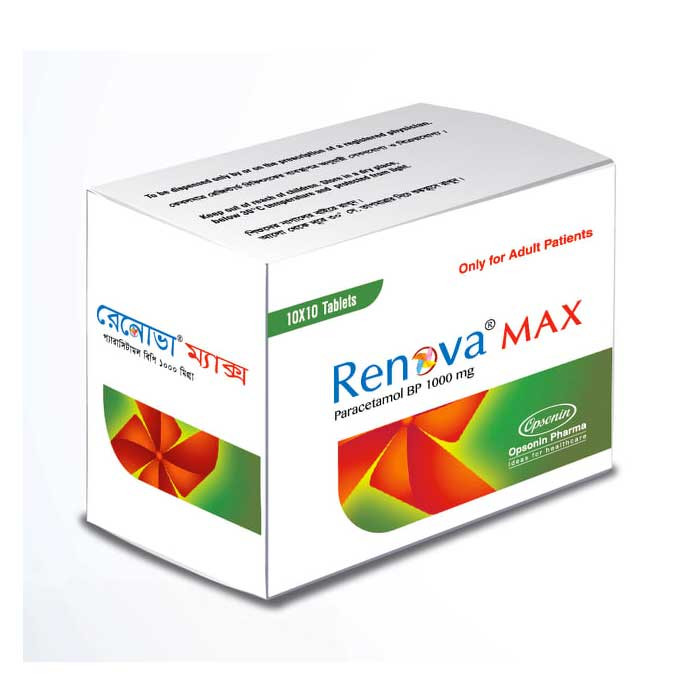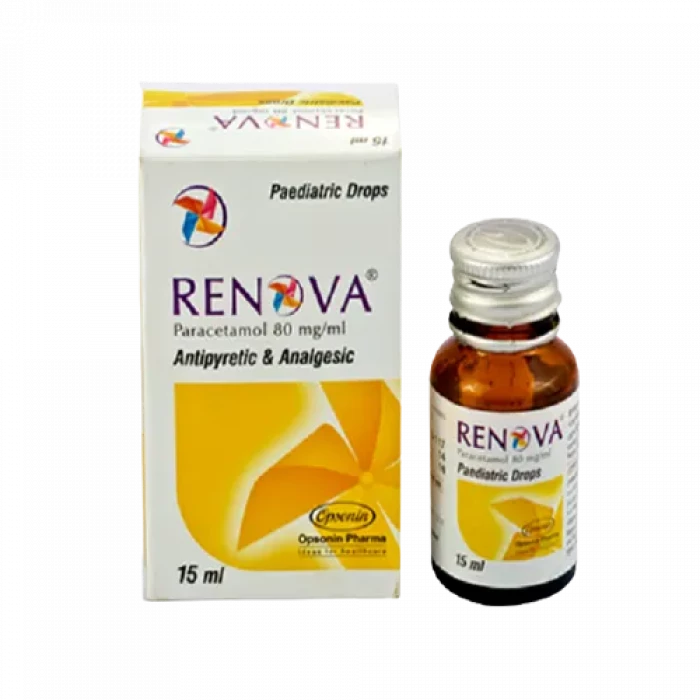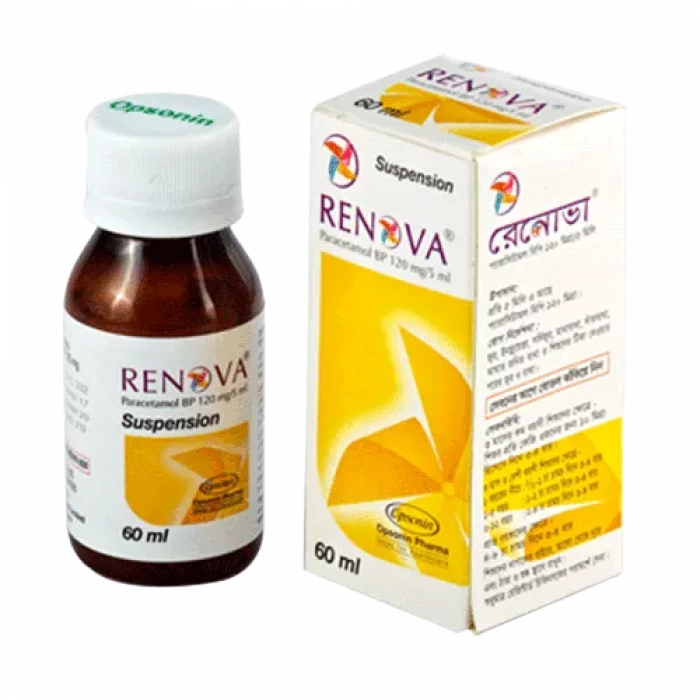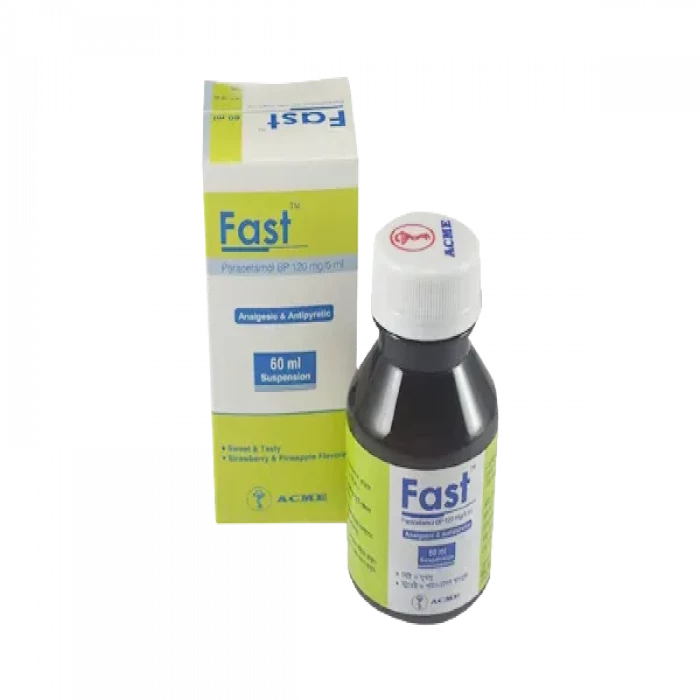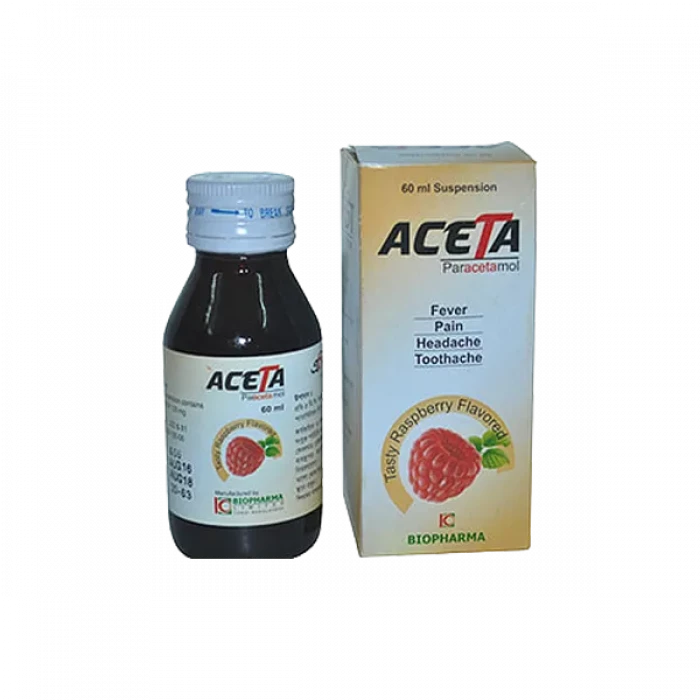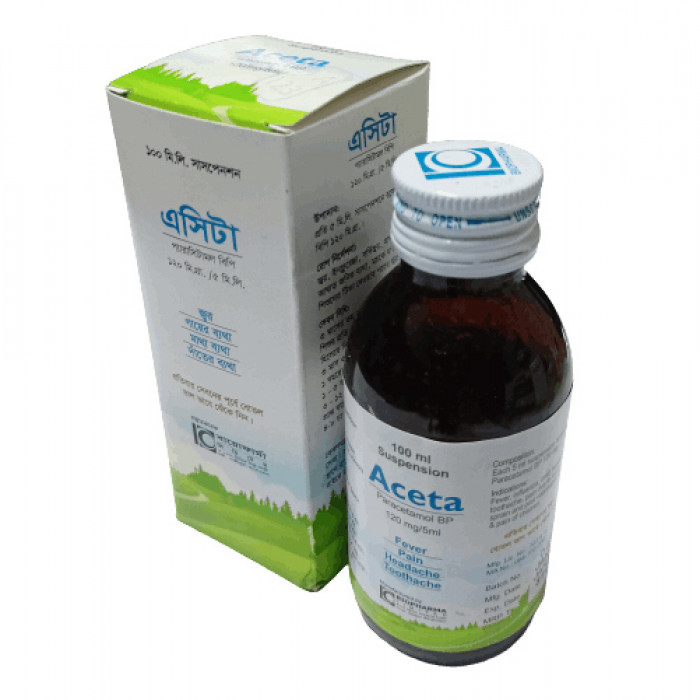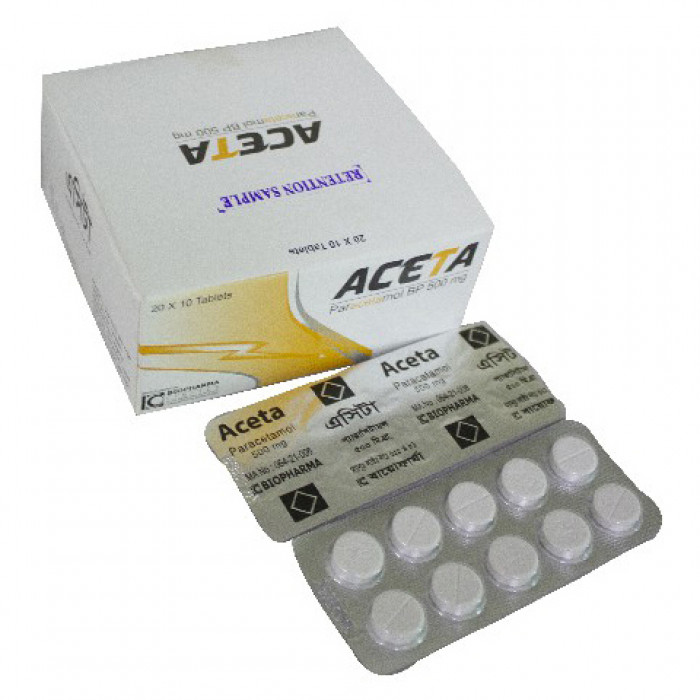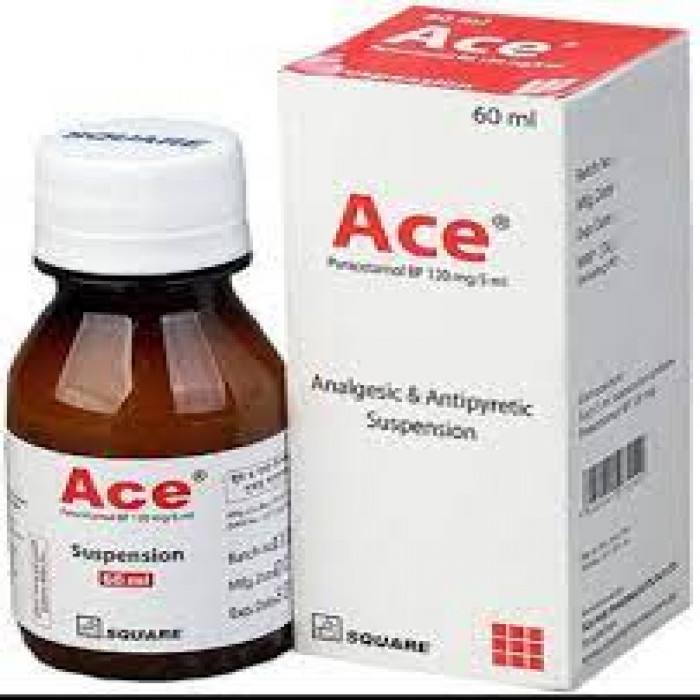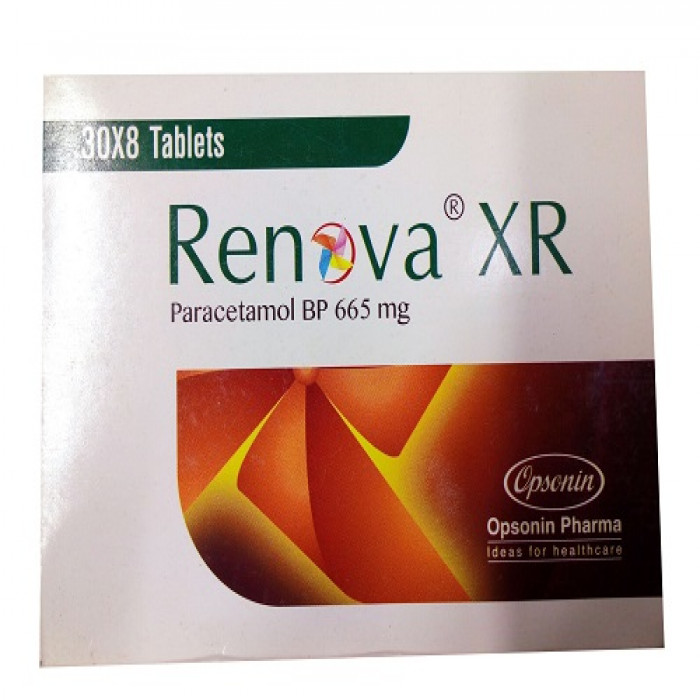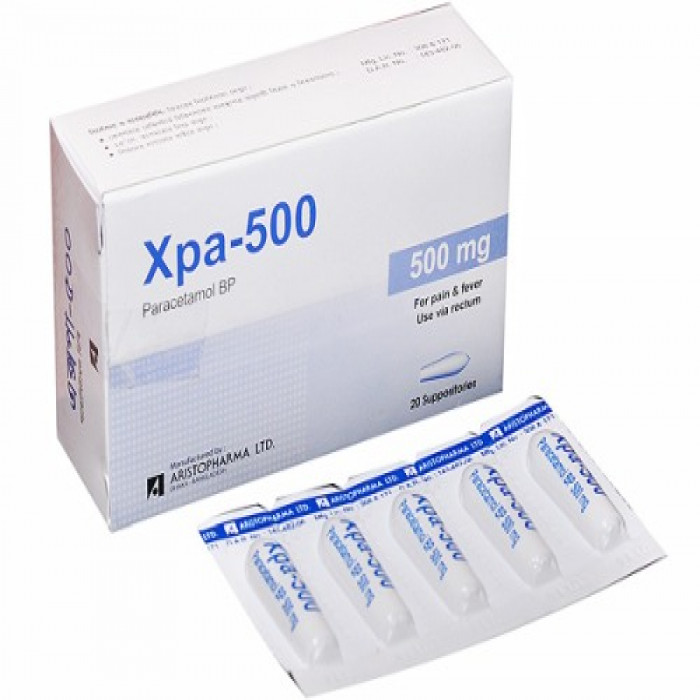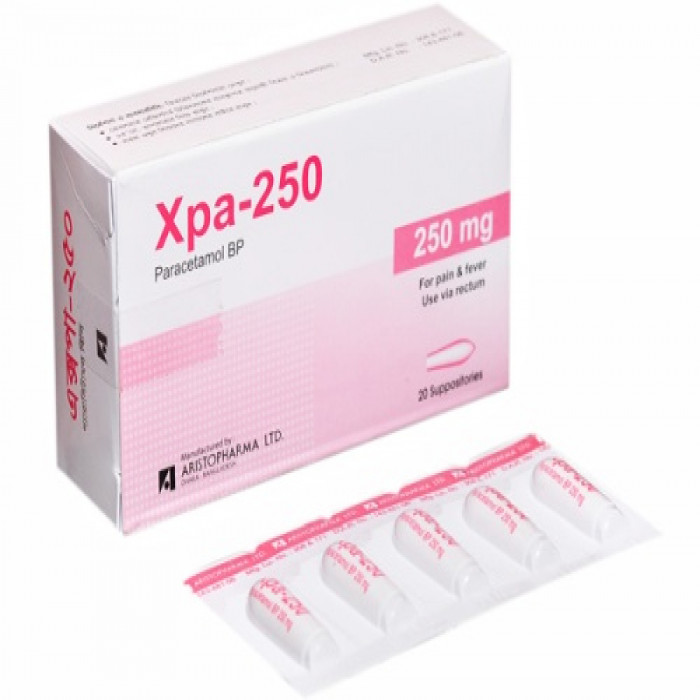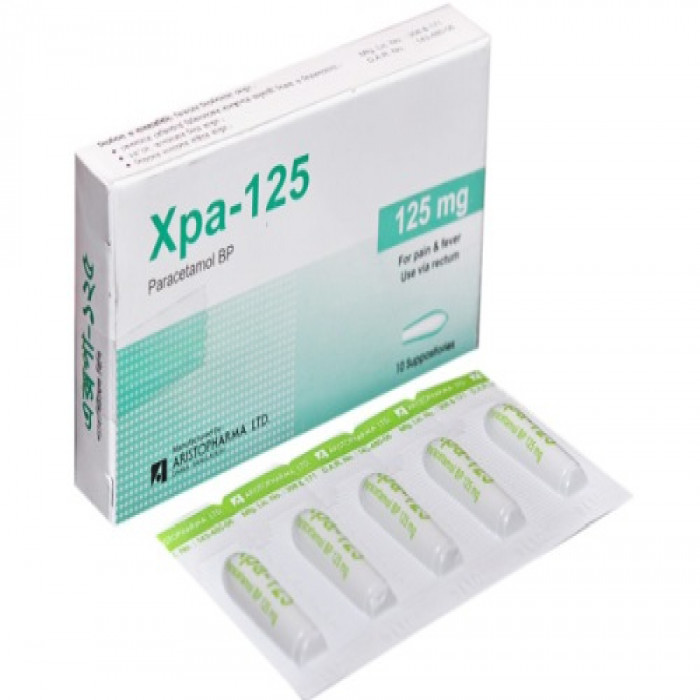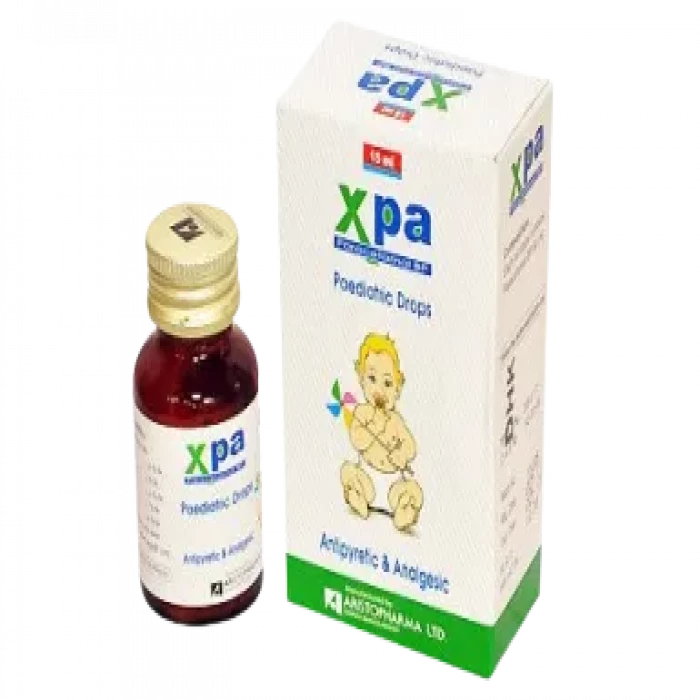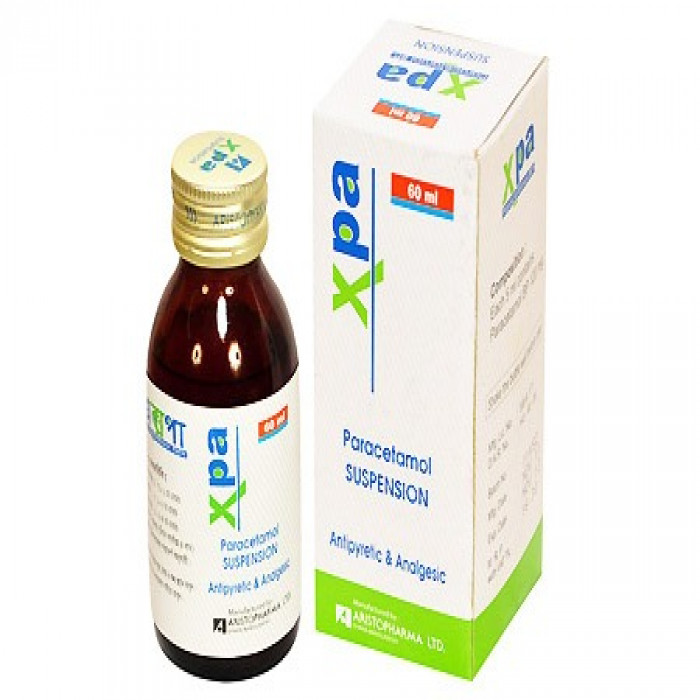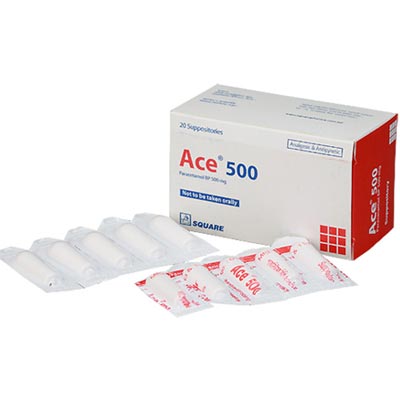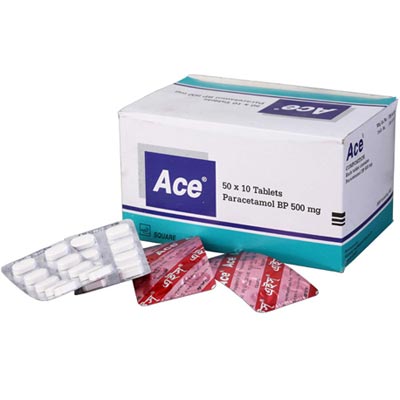

✔ 100% Authentic Product
👁️ Currently Viewing 6720
Ace 500 is a Tablet manufactured by Square Pharmaceuticals Limited. It is commonly used for the diagnosis or treatment of Headaches, Toothache, Menstrual pain, Fever, and Colds. It has some side effects such as Allergic reactions, skin redness, Nausea, and Blisters. The composition Paracetamol (500mg) is involved in the preparation of Ace 500mg Tablet.
Discount
Price: ৳ 11
MRP:
৳
12
5%
Off

100% Genuine Products, Guaranteed

Safe & Secure Payments, Always

Fast, Secure & Efficient Delivery

Proper Packaging
 Cash on Delivery - All over Bangladesh
Cash on Delivery - All over Bangladesh Regular Delivery - 12-24 Hours, Dhaka City* Charge Tk.39-59
Regular Delivery - 12-24 Hours, Dhaka City* Charge Tk.39-59 Regular Delivery - 24-48 Hours, Other Cities* Charge Tk.99-110
Regular Delivery - 24-48 Hours, Other Cities* Charge Tk.99-110
🌙 রমযান অফার 🌙
 ফ্রি ডেলিভারিঃ - ৭৯৯ টাকা+ অর্ডারে, ঢাকা
শহরে
ফ্রি ডেলিভারিঃ - ৭৯৯ টাকা+ অর্ডারে, ঢাকা
শহরে ফ্রি ডেলিভারিঃ - ২৭৯৯ টাকা+ অর্ডারে, ঢাকার
বাহিরে
ফ্রি ডেলিভারিঃ - ২৭৯৯ টাকা+ অর্ডারে, ঢাকার
বাহিরে
📲 মোবাইল অ্যাপ অর্ডারে সাশ্রয় বেশী
-
Google Play Store থেকে ডাউনলোড
-
Apple Store থেকে ডাউনলোড
100% Genuine Products, Guaranteed
Safe & Secure Payments, Always
Fast, Secure & Efficient Delivery
Proper Packaging
 Cash on Delivery - All over Bangladesh
Cash on Delivery - All over Bangladesh Regular Delivery - 12-24 Hours, Dhaka City* Charge Tk.39-59
Regular Delivery - 12-24 Hours, Dhaka City* Charge Tk.39-59 Regular Delivery - 24-48 Hours, Other Cities* Charge Tk.99-110
Regular Delivery - 24-48 Hours, Other Cities* Charge Tk.99-110 ফ্রি ডেলিভারিঃ - ৭৯৯ টাকা+ অর্ডারে, ঢাকা
শহরে
ফ্রি ডেলিভারিঃ - ৭৯৯ টাকা+ অর্ডারে, ঢাকা
শহরে ফ্রি ডেলিভারিঃ - ২৭৯৯ টাকা+ অর্ডারে, ঢাকার
বাহিরে
ফ্রি ডেলিভারিঃ - ২৭৯৯ টাকা+ অর্ডারে, ঢাকার
বাহিরে- Google Play Store থেকে ডাউনলোড
- Apple Store থেকে ডাউনলোড
🌙 রমযান অফার 🌙
📲 মোবাইল অ্যাপ অর্ডারে সাশ্রয় বেশী
✅ Description:
- Ace 500mg Tablet is a medication that belongs to the group of analgesics and antipyretics. It is used to reduce fever and treat mild to moderate pain. It is effective in relieving various types of pain such as headaches, migraine, toothache, period pain, back pain, muscle pain, and rheumatic pains. Pain and fever are caused by the activation of pain receptors due to the release of certain chemicals called prostaglandins in the body.
- Ace 500mg Tablet works by inhibiting the production of prostaglandins, which are chemical messengers in the brain. By doing so, it reduces pain. Additionally, Ace 500mg Tablet affects the hypothalamic heat-regulating center in the brain, which helps in reducing fever.
- It is important to take Ace 500mg Tablet as prescribed by your physician. The dosage and frequency of administration will be determined by your medical condition. Some common side effects of Ace 500mg Tablet may include nausea, stomach pain, and dark-colored urine. In most cases, these side effects are temporary and do not require medical attention. However, if they persist or worsen, it is recommended to consult your doctor.
- It is advised to avoid taking Ace 500mg Tablet if you are allergic to it. This medication is not recommended for children below 6 years of age. If you are pregnant or breastfeeding, it is important to consult a physician before using Ace 500mg Tablet. Alcohol consumption should be avoided while taking Ace 500mg Tablet as it may increase the risk of liver damage. If you have an impaired nutritional state caused by anorexia, malnutrition, or alcohol abuse, or if you are dehydrated, it is important to inform your doctor before taking Ace 500mg Tablets.
- Please note that the information provided here is a summary and it is always best to follow the specific instructions and advice given by your doctor regarding the use of any medication.
Safety Advices

Alcohol
UNSAFE
Avoid consumption of alcohol with Paracetamol as it may cause severe liver damage.

Pregnancy
CONSULT YOUR DOCTOR
Ace 500mg Tablet can be used during pregnancy if advised by your doctor. Still, it should be used for a short duration in low doses and should not be used too frequently by pregnant women.

Breastfeeding
CONSULT YOUR DOCTOR
Paracetamol passes into the breast milk in a very small amount and has negligible effects on breastfed infants. Thus, DAce 500mg Tablet can be used while breastfeeding.

Driving
CAUTION
Ace 500mg Tablet may not affect your ability to drive or use machines.

Kidney
CAUTION
Take Ace 500mg Tablet with caution, especially if you have a history of kidney diseases/conditions. The dose may be adjusted by your physician as required.

Liver
CAUTION
Take Ace 500mg Tablet with caution, especially if you have a history of liver diseases/conditions. The dose may be adjusted by your physician as required.
✔️ Uses of Ace 500mg Tablet
- Fever
- Mild to Moderate pain
- Post Vaccination Fever
✔️ How does Ace 500mg Tablet work?
Ace 500mg Tablet decreases the intensity of pain signals in the brain. It also stops the release of prostaglandins, the chemical responsible for pain, and increases body temperature. Thus, this medicine provides relief from fever and mild to moderate pain.
✔️ Side Effects of Ace 500mg Tablet
- Stomach pain
- Dark colored urine
- Nausea and Vomiting
- Stomach pain
- Diarrhea
- Indigestion
- Skin Rash
✔️ Indication
Paracetamol is indicated in:
- Fever, common cold, and influenza.
- Headache, toothache, earache, body ache, myalgia, dysmenorrhoea, neuralgia, and sprains.
- The pain of colic, back pain, post-operative pain, postpartum pain, chronic pain of cancer, inflammatory pain, post-vaccination pain and fever of children.
- Rheumatism and osteoarthritic pain & stiffness of joints in fingers, hips, knees, wrists, elbows, feet, ankles, and top & bottom of the spine.
✔️ Pharmacology
Paracetamol, also known as acetaminophen, is an analgesic (pain reliever) and antipyretic (fever reducer) medication. It is commonly used to relieve mild to moderate pain and reduce fever. Paracetamol is believed to exert its effects mainly in the central nervous system by increasing the pain threshold.
The exact mechanism of action of paracetamol is not fully understood, but it is thought to involve the inhibition of cyclooxygenase enzymes, specifically COX-1, COX-2, and COX-3. These enzymes are involved in the synthesis of prostaglandins, which are chemical messengers that contribute to the sensation of pain and the generation of fever. By inhibiting these enzymes, paracetamol reduces the production of prostaglandins, thereby providing pain relief and reducing fever.
It is important to note that while paracetamol has analgesic and antipyretic properties, its anti-inflammatory activity is weak compared to non-steroidal anti-inflammatory drugs (NSAIDs) such as ibuprofen or aspirin. Paracetamol is generally considered safe and well-tolerated when used as directed. However, it is always important to follow the recommended dosage and consult a healthcare professional if you have any concerns or questions about its use.
✔️ Dosage & Administration of
The recommended dosage of the tablet form of paracetamol (acetaminophen) varies depending on the age and condition of the individual. Here are the general dosing guidelines:
For Adults: Take 1-2 tablets (500-1000 mg) every 4 to 6 hours as needed for pain or fever. However, the maximum daily dose should not exceed 4 grams (8 tablets).
For Children (6-12 years): Take ½ to 1 tablet (250-500 mg) 3 to 4 times daily as needed. It is important to follow the recommended dosage for children and consult a healthcare professional for appropriate dosing instructions based on the child's age and weight.
It is advisable not to exceed the maximum daily dose of 4 grams (8 tablets) for adults and 2.6 grams for children to avoid the risk of liver damage. If the symptoms persist or worsen, it is recommended to consult a healthcare professional.
When taking the tablet or capsule form of paracetamol, swallow it whole with a glass of water. It can be taken with or without food at any time. It should not be crushed, broken, or chewed unless specifically instructed by your healthcare provider. Following these instructions helps ensure the proper absorption and effectiveness of the medication.
✔️ Interaction
Drug-Drug Interactions: Ace 500mg Tablet may interact with various medications, including:
- Blood thinners (warfarin)
- Cholesterol-lowering drugs (cholestyramine)
- Analgesics (aspirin)
- Antibiotics (chloramphenicol, rifampicin)
- Anti-gout medicines (probenecid)
- Antitubercular drug (isoniazid)
- Anticonvulsants (lamotrigine, carbamazepine, phenytoin)
- Anti-nausea agents (metoclopramide, domperidone)
It is important to be cautious when using these medications together, and it may be necessary to adjust the doses or closely monitor for any potential interactions or side effects. It is advisable to consult a healthcare professional or pharmacist for more specific information based on individual circumstances.
Drug-Food Interactions:
Ace 500mg Tablet may interact with St. John's wort, an herbal medicine used to treat depression. Additionally, it is recommended to avoid foods rich in carbohydrates and pectin, such as jellies, cabbage, Brussels sprouts, and broccoli, as they may interact with Ace 500mg Tablet. Alcohol consumption should also be avoided as it can increase the risk of liver damage when taken with Ace 500mg Tablet.
Drug-Disease Interactions:
If you have kidney or liver disease, hepatitis, Gilbert's syndrome, hemolytic anemia, G-6-PD deficiency, or blood poisoning, it is important to inform your physician before taking Ace 500mg Tablet. These conditions may require special monitoring or adjustments in the dosage or frequency of Ace 500mg Tablet.
Please note that this information is not exhaustive, and it is always recommended to consult a healthcare professional or pharmacist for personalized advice regarding potential interactions with specific medications, foods, or medical conditions.
✔️ Contraindications
It is contraindicated in known hypersensitivity to Paracetamol.
✔️ Pregnancy & Lactation
Paracetamol (the active ingredient in Ace 500mg Tablet) is generally considered safe for use during pregnancy and is classified as pregnancy category B by the U.S. Food and Drug Administration (FDA). Pregnancy category B means that animal reproduction studies have not shown any risk to the fetus, but there are no well-controlled studies in pregnant women.
Paracetamol is commonly used to relieve pain and reduce fever during pregnancy when necessary. However, as with any medication, it is always recommended to consult with a healthcare professional or your doctor before taking any medications during pregnancy. They can provide specific guidance based on your individual circumstances and help weigh the benefits and potential risks of using paracetamol during pregnancy.
It's important to note that the safety of any medication during pregnancy should be determined by a healthcare professional, taking into account the potential benefits and risks for both the mother and the unborn baby.
✔️ Precautions & Warnings
- Allergy: Avoid taking Ace 500mg Tablet if you are allergic to it or have had a previous allergic reaction to it.
- Age restrictions: Ace 500mg Tablet is not recommended for children below 6 years of age. Use in pediatric patients should be based on the advice and guidance of a healthcare professional.
- Pregnancy and breast-feeding: If you are pregnant or breastfeeding, it is important to consult a physician before using Ace 500mg Tablet They can assess the potential risks and benefits for you and your baby.
- Alcohol consumption: Avoid consuming alcohol while taking Ace 500mg Tablet as it may increase the risk of liver damage.
- Impaired nutritional state or dehydration: Inform your doctor if you have an impaired nutritional state caused by anorexia, malnutrition, alcohol abuse, or if you are dehydrated. These conditions may require special consideration or monitoring when taking Ace 500mg Tablet.
- Dosage: It is important to follow the recommended dosage and avoid exceeding the recommended doses of Ace 500mg Tablet. Taking more than the recommended dose may increase the risk of serious liver damage.
✔️ Storage Conditions
Keep in a dry place away from light and heat. Keep out of the reach of children.
⚠️Disclaimer:
At ePharma, we’re committed to providing accurate and accessible health information. However, all content is intended for informational purposes only and should not replace medical advice from a qualified physician. Please consult your healthcare provider for personalized guidance. We aim to support, not substitute, the doctor-patient relationship.






